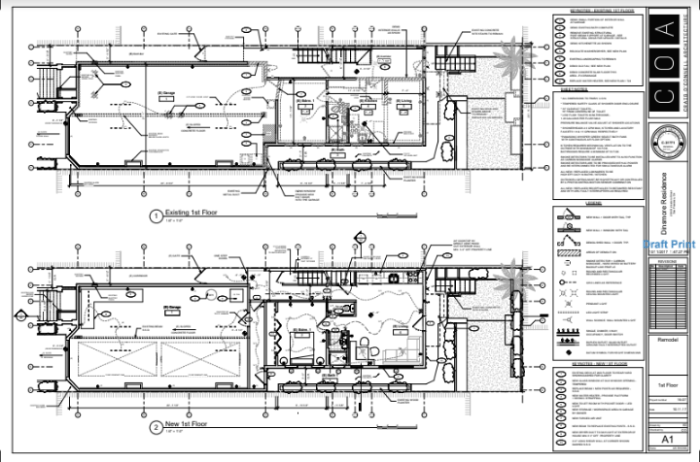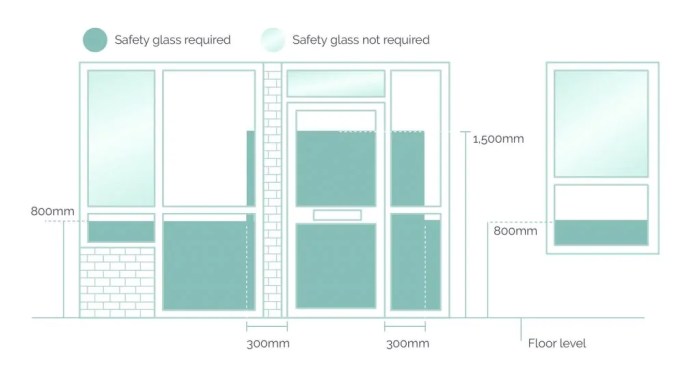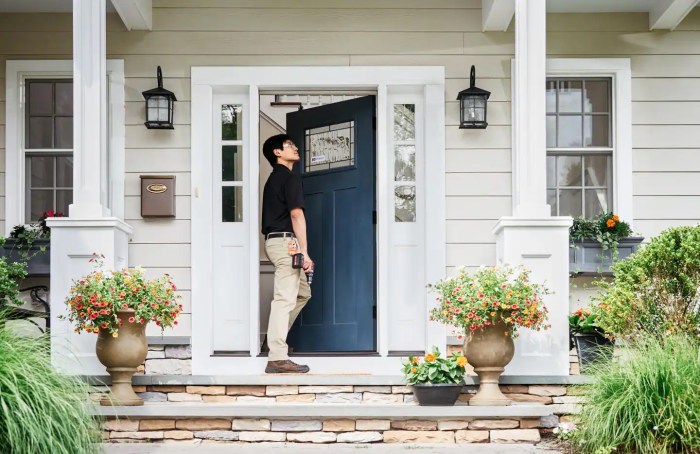Potters Interiors: Permit Requirements for Remodeling
Potters Interiors: Permit Requirements for Remodeling sets the stage for this enthralling narrative, offering readers a glimpse into a story that is rich in detail and brimming with originality.
As we delve into the world of permit requirements for remodeling, a fascinating journey awaits, filled with essential information and insights to guide you through this intricate process.
Overview of Permit Requirements for Remodeling

Permit requirements for remodeling projects refer to the regulations and approvals needed from local authorities before making any changes to a building's structure or systems. These permits ensure that the remodeling work complies with safety, zoning, and building code standards.
It is crucial to obtain permits before starting a remodeling project to avoid legal issues, fines, and potential safety hazards. Failure to secure the necessary permits can result in costly consequences, such as having to undo the work or pay penalties.
Examples of Common Remodeling Activities Requiring Permits
- Structural changes: Altering load-bearing walls, adding or removing walls, or changing the roof structure all typically require permits.
- Electrical work: Installing new wiring, outlets, or circuits, as well as upgrading electrical panels, usually necessitates permits to ensure compliance with electrical codes.
- Plumbing modifications: Any changes to plumbing systems, such as installing new fixtures, rerouting pipes, or replacing water heaters, often require permits to meet plumbing code requirements.
- HVAC upgrades: Replacing heating, ventilation, and air conditioning systems, adding ductwork, or making significant modifications to existing HVAC systems usually need permits for safety and energy efficiency reasons.
Types of Permits Needed for Remodeling
When undertaking a remodeling project, it is essential to be aware of the various types of permits that may be required to ensure compliance with building codes and regulations. Failure to obtain the necessary permits can result in fines, delays, or even having to undo completed work.
Electrical Permits
- Required for any electrical work, such as installing new wiring, outlets, or fixtures.
- Ensures that the electrical work meets safety standards and is performed by a licensed electrician.
- May involve inspections to verify compliance with regulations.
Plumbing Permits
- Necessary for any plumbing alterations, such as adding or relocating plumbing fixtures.
- Helps ensure that the plumbing work is done correctly and meets plumbing codes.
- Inspections may be required to check for proper installation.
Structural Permits
- Required for any structural changes, such as removing walls, adding new windows, or altering the roofline.
- Ensure that the structural integrity of the building is maintained and that alterations are safe and compliant.
- Structural permits often involve detailed plans and calculations to demonstrate the proposed changes.
Determining Necessary Permits
To determine which permits are needed for a remodeling project, it is crucial to consider the scope of work involved. Consulting with a local building department or permit office can help clarify the specific permits required based on the project details.
Additionally, working with a contractor who is familiar with local regulations can ensure that all necessary permits are obtained before starting the project.
Application Process for Obtaining Permits
When it comes to obtaining permits for a remodeling project, there are specific steps and requirements that need to be followed. The application process can sometimes be complex, so it's important to understand what is needed beforehand to ensure a smooth process.
Documentation and Information Required
- Completed permit application form: This form can usually be obtained from the local building department or online.
- Detailed remodeling plans: Provide detailed drawings or blueprints of the project, including structural changes and materials to be used.
- Property information: Details about the property where the remodeling will take place, such as the address, lot number, and zoning information.
- Contractor information: If using a contractor, include their license information, insurance details, and contact information.
- Additional documents: Depending on the scope of the project, additional documents such as surveys, environmental impact reports, or historical preservation approvals may be required.
Special Considerations and Requirements
- Building codes and regulations: Ensure that the remodeling project complies with all local building codes and regulations to avoid any delays or issues.
- Permit fees: Be prepared to pay permit fees, which can vary depending on the scope of the project and the jurisdiction.
- Inspections: After the permit is obtained, inspections may be required at various stages of the remodeling process to ensure compliance with building codes.
- Timelines: Allow for sufficient time for the permit application to be processed and approved before starting the remodeling project to avoid delays.
Permit Costs and Timelines
When it comes to remodeling projects, permit costs and timelines play a crucial role in the overall planning and execution. Understanding how permit costs are calculated, what factors can influence them, and the timelines involved in the approval process is essential for a successful renovation project.
Breakdown of Permit Costs
Obtaining permits for remodeling typically incurs costs that can vary based on the scope and scale of the project. The breakdown of permit costs usually includes application fees, processing fees, inspection fees, and any additional fees specific to the type of permit required.
It's important to budget for these costs in advance to avoid any surprises during the renovation process.
Factors Affecting Permit Costs
Permit costs are usually calculated based on the valuation of the project, which is determined by factors such as the size of the renovation, the type of work being done, and the materials being used. Other factors that can affect permit costs include the location of the property, whether any special inspections are needed, and any additional services required by the permit issuing authority.
Timelines for Permit Approval
The timelines involved in the permit approval process can vary depending on the complexity of the project, the volume of applications being processed, and the efficiency of the permit issuing authority. Typically, the permit approval process can take anywhere from a few weeks to a few months.
Delays in the approval process can impact the overall timeline of the renovation project, so it's important to factor in potential delays when planning the project schedule.
Consequences of Not Obtaining Permits
When it comes to remodeling projects, failing to obtain the necessary permits can lead to a variety of negative consequences. Not only does it violate building codes and regulations, but it can also result in legal issues, fines, and safety hazards.
Legal Implications
Undertaking remodeling work without the required permits can have serious legal implications. Building codes are in place to ensure the safety and integrity of structures, and failing to comply with these regulations can result in legal action. This may include being forced to halt the project, paying fines, or even having to undo the work that was done without permits.
Financial Consequences
Aside from potential legal repercussions, not obtaining permits can also lead to financial consequences. In some cases, municipalities may impose hefty fines on property owners who fail to adhere to permit requirements. Additionally, insurance companies may refuse to cover damages related to work done without permits, leaving homeowners liable for any issues that arise.
Safety Risks
Another significant consequence of not obtaining permits is the safety risks involved. Permits are often required for projects that involve structural changes or electrical work, as these can pose serious safety hazards if not done correctly. Without the oversight of inspectors during the permit process, there is a higher risk of accidents, fires, or other safety issues.
Real-Life Examples
There have been numerous instances where not obtaining permits has caused problems during or after a remodeling project. For example, a homeowner who built an addition without permits had to pay substantial fines and ultimately had to remove the structure.
In another case, a property owner faced legal action after a remodel resulted in safety hazards due to work being done without permits.
Closing Notes
In conclusion, the exploration of Potters Interiors: Permit Requirements for Remodeling unveils a tapestry of regulations and considerations vital for any remodeling endeavor. With this newfound knowledge, you are equipped to navigate the complexities of permit requirements with confidence and clarity.
FAQs
What are permit requirements in remodeling projects?
Permit requirements in remodeling projects refer to the necessary approvals from local authorities to ensure that the project complies with safety and building codes.
How do I determine which permits are needed for my remodeling project?
Determining the required permits depends on the scope of your project. Generally, permits are needed for activities like structural changes, electrical work, and plumbing alterations.
What are the consequences of not obtaining permits for a remodeling project?
Not obtaining permits can lead to legal issues, fines, and risks such as unsafe structures or potential problems during inspections or property sales.




